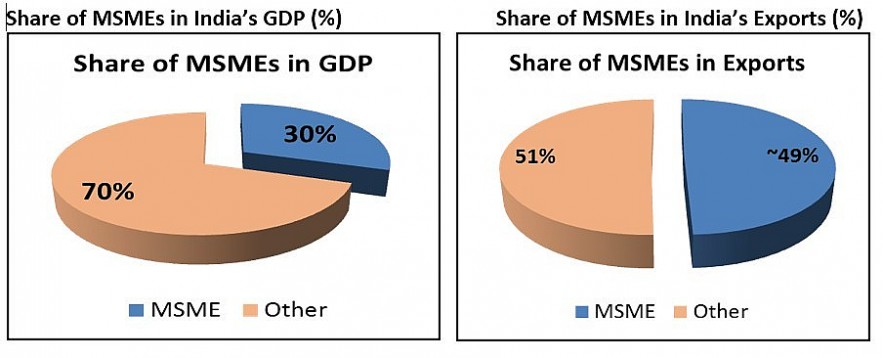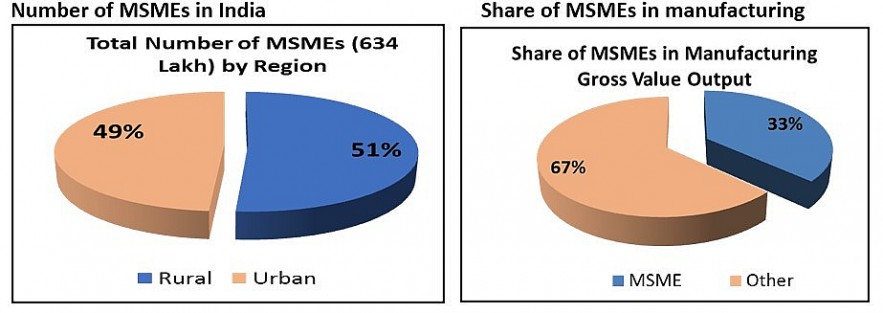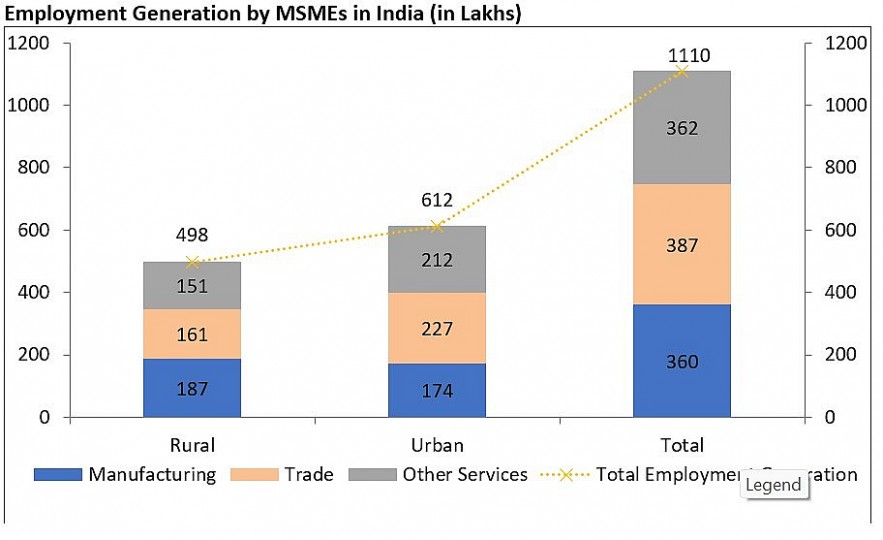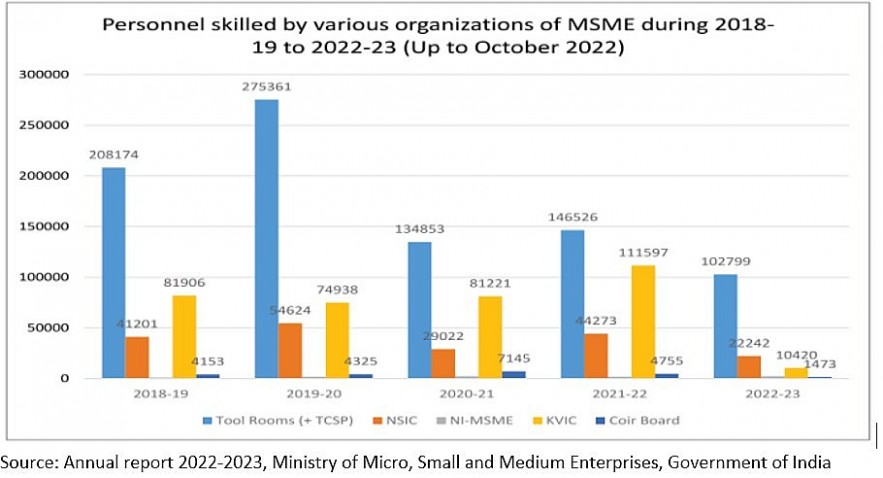Emerging contours of MSMEs in India - MSMEs shape the destiny of Indian economy
The rise of MSMEs in India has had a number of positive impacts on the economy. Small businesses have created millions of jobs, boosting economic growth, and helping to reduce poverty in the country. MSMEs have been a source of innovation and creativity, helping to drive the Indian economy towards Viksit Bharat.
MSMEs have emerged as the big segment worldwide, including some of the most advanced countries like the USA, the UK, Germany, and Japan. Small scale industry in these countries is considered to be the leading sector. Among the top five economies, India has highest number of MSMEs at more than 63 million followed by China at more than 52 million, USA at more than 30 million and Germany and Japan have approximately 3.4 million MSMEs.
MSMEs in India have been classified based on their investment in Plant and Machinery or Equipment, along with their Annual Turnover. Micro enterprises, the smallest category, encompass businesses with investments not exceeding Rs. 1 crore (0.1 USD million) and annual turnovers not surpassing Rs. 5 crore (0.6 USD million). Small enterprises are defined by investments not exceeding Rs. 10 crore (1.2 USD million) and annual turnovers not exceeding Rs. 50 crore (6.0 USD million).
Medium enterprises, comprise businesses with investments not exceeding Rs. 50 crore (6.0 USD million) and annual turnovers not exceeding Rs. 250 crore (30.2 USD million).
Recognizing the critical role of MSMEs in shaping India’s futuristic growth trajectory and strengthening India’s journey towards Viksit Bharat, the Government of India has undertaken various reforms for the growth of MSMEs in the recent years:
- Enhancement of limit of MUDRA loans to Rs. 20 lakh (0.02 USD million)
- Access to bank credit to MSMEs during their stress period
- Financial support for shifting to cleaner forms of energy.
- E-Commerce Export Hubs under public-private-partnerships (PPP).
- Rs 100 crore (12 USD million) Credit Guarantee manufacturing sector
- Support to stimulate innovation, entrepreneurship, and local economies.
- Digital Public Infrastructure to facilitate easier access to financial services
The MSME contribute significantly to India's exports, accounting for approximately 49% of the country's export earnings, highlighting its vital role in driving international trade. This participation not only expands market access but also fosters innovation and enhances competitiveness, ultimately contributing to India’s economic growth.
 |
India is home to an estimated 634 lakh (63 million) MSMEs, with a regional distribution showing 49% located in urban areas and 51% in rural regions. The sector contributes around 30% in India’s GDP and 33% in India’s manufacturing GVA. This contribution reflects the substantial economic output generated by MSMEs across various sectors, including manufacturing, services, and trade.
 |
MSMEs have been instrumental in generating employment opportunities in India, contributing significantly to the country's workforce. Collectively, these enterprises have generated 1110 lakh (111 million) jobs in the country, providing substantial livelihood to rural (498 lakhs/49 million jobs) and urban (612 lakhs/61 million jobs) in the country.
 |
MSMEs are instrumental in the skill development, grooming the young minds towards futuristic entrepreneurs. Organizations under the Ministry of Micro, Small, and Medium Enterprises (MSME) provide skill training to youths for wage employment and self-employment. They offer skill up gradation training to existing entrepreneurs and working professionals to help them improve their performance. These trainings are offered under various schemes, such as:
- MSME-Technology Centres (MTCs)
- Assistance to Training Institutions (ATI)
- National SC/ST Hub
- Capacity Building
- Coir Vikas Yojna – Skill Up gradation & Mahila Coir Yojna
In addition, organizations under the MSMEs Ministry also conduct customized demand-driven training courses that are tailored to the specific needs of industries. This training has helped to improve the skills and employability of millions of people in India. It has also helped to create new jobs and boost economic growth.
 |
MSMEs are of particular significance to the Indian economy. This labor-intensive sector helps to maintain the socio-economic equilibrium. MSMEs collectively as an engine of economic growth, have gained the attention of policymakers because of their potential of generating higher economic yield with low investments. MSMEs play a vital role in the growth and development of Indian economy.
The government's unwavering support for Micro, Small, and Medium Enterprises (MSMEs) has been instrumental in propelling India's economic growth and development. MSMEs in India foster inclusive growth and entrepreneurship, innovation, and resilience across various sectors. Such collaborative efforts between the government and the MSME sector pave the way for India's journey towards economic prosperity and resilience, aligning with the vision of Viksit Bharat by 2047.
International trade allows MSMEs to access new markets, diversify revenue sources, and gain exposure to global best practices, leading to increased productivity and economic expansion in the country.
MSMEs focus on employing simple skills and mechanisms. MSMEs cover a broad spectrum of industries and occupy an important position in the planned development of Indian economy. This labor-intensive sector reduce regional economic imbalances through income and employment generation and economic independence.
In conclusions, MSMEs occupied an important place in the economy by generating employment opportunities and broadcasting entrepreneurship, thereby acting as an instrument of social transformation. In recent times, small-scale firms have been recognised as an instrument for balanced regional development and employment generation. Going ahead, the development of technical and managerial skills, continued economic policy facilitation, and the global outreach of MSMEs will go a long way to provide ample employment opportunities to the growing young population in India.



